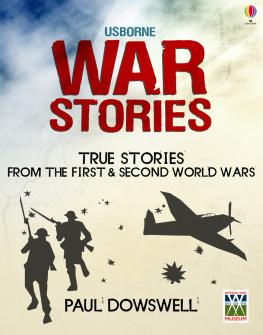Ahdaf Soueif - I Think of You: Stories
Here you can read online Ahdaf Soueif - I Think of You: Stories full text of the book (entire story) in english for free. Download pdf and epub, get meaning, cover and reviews about this ebook. year: 2007, publisher: Anchor, genre: Non-fiction. Description of the work, (preface) as well as reviews are available. Best literature library LitArk.com created for fans of good reading and offers a wide selection of genres:
Romance novel
Science fiction
Adventure
Detective
Science
History
Home and family
Prose
Art
Politics
Computer
Non-fiction
Religion
Business
Children
Humor
Choose a favorite category and find really read worthwhile books. Enjoy immersion in the world of imagination, feel the emotions of the characters or learn something new for yourself, make an fascinating discovery.

- Book:I Think of You: Stories
- Author:
- Publisher:Anchor
- Genre:
- Year:2007
- Rating:5 / 5
- Favourites:Add to favourites
- Your mark:
- 100
- 1
- 2
- 3
- 4
- 5
I Think of You: Stories: summary, description and annotation
We offer to read an annotation, description, summary or preface (depends on what the author of the book "I Think of You: Stories" wrote himself). If you haven't found the necessary information about the book — write in the comments, we will try to find it.
I Think of You: Stories — read online for free the complete book (whole text) full work
Below is the text of the book, divided by pages. System saving the place of the last page read, allows you to conveniently read the book "I Think of You: Stories" online for free, without having to search again every time where you left off. Put a bookmark, and you can go to the page where you finished reading at any time.
Font size:
Interval:
Bookmark:
Fiction
In the Eye of the Sun
The Map of Love
Nonfiction
Mezzaterra: Fragments from the Common Ground
Translations
I Saw Ramallah: A Memoir by Mourid Barghouti
Ahdaf Soueif was born in Cairo. She is the author of the bestselling novel The Map of Love, which was shortlisted for the Booker Prize in 1999, as well as Mezza-terra: Fragments from the Common Ground and the novel In the Eye of the Sun. She also has translated from the Arabic the award-winning memoir I Saw Ramallah by Mourid Barghouti. She lives with her family in London and Cairo.

I remember a time of happy, dappled sunlight. French windows open onto a flowering garden. From the garden gate to the open windows runs a paved and sloping pathway, and at the top of the pathway stands a bright blue tricycle poised for the dizzying, exhilarating glide down the path. All you had to do was get it to the beginning of the incline and lift your feet off the ground and whooaway you went. You had to pull up smartly or you ended up inside the living room.
The living room has huge, faded armchairs and colored rugs and lots and lots of books. The walls are covered with them. Some have pictures, some you are allowed to pick up and look at, some are not to be touched. All are to be treated with great respect and never torn or folded or scribbled in or put face downward or looked at while eating in case you drop food on them. In the middle of the books sit the grown-ups.
The grown-ups are wonderful. They drink tea and smoke and laugh and talk all the time. The women are beautiful with red lips and fingernails. The men are tall and handsome. They all do clever things. They write books and make music and paint pictures. Their pictures blaze on the walls of our apartment.
Looking back, I see a pool of sunlight, and in it, a child. She is dressed in a blue-and-white-spotted frock with a white lace bodice. She holds on to her mothers skirt. Seized by a sudden fit of shyness outside the door of the living room, she sucks slowly at her thumb. But then, coaxed and encouraged, she ventures in and is immediately picked up and cuddled and kissed to a chorus of Darling. Ive got to paint her. Ive simply got to paint her, cries Uncle Sameer, as he does every time and, reassured, she tosses her hair back and smiles up at him. Yes. The grown-ups are wonderful.
And clever. And wise. They can do anything, explain everything. The child is lying in her bed. Every time her mother puts out the light a horrible creature with long curving arms appears on the ceiling of her room and she screams. Her mother comes back in and switches on the light, but she can see nothing. After a bit she calls the father. He too can see nothing, but he lies down beside her. Her mother switches off the light and closes the door. He sees the creature on the ceiling. Its the shadow of the chandelier, little goose. He comforts her and shows her how it moves when the chandelier moves and explains about light and shadow. She is safe.
Yes. The world is safe and pleasant and the worst grief I know is to be beaten at Snakes and Ladders by Uncle Murad. He moves my counter slowly down every curve of the final fatal snake and I watch, lips trembling, on the verge of tears, till my father intervenes and carries me off.
My father is a psychologist. He is very strong. He can crack nuts by pressing them in his hands. When we play in the garden he can run very fast. He runs very fast in circles. He runs so fast that I cant catch him. But after a bit he slows down and I am able to run up to his legs and hold him tight.
The garden is always sunny. I play with my blue tricycle or eat my meals sitting in a wide-eyed rocking duck. This is my home. I know the address by heart.
Near my home there is the club. My nanny, Dada Zeina, takes me there most afternoons. In summer I swim. At other times I play on the swings. Sometimes I have a magazine or a picture book. I sit on the grass beside Dada Zeina and look at the pictures. She chats to the other nannies, but I am absorbed in the pictures.
In an older part of town there is another house that I go to often. There too I know the address by heart. It is older than our house and the rooms are bigger and higher. In the center of a high-ceilinged room full of sunlight, a woman is kneeling on a red and blue prayer mat. Her hands are folded one over the other. Her eyes are closed. When they are open they are a deep green. Underneath her flowing white headdress, her hair is a long, soft light brown. Beside the prayer mat, the slippers she has taken off stand side by side. They are flat and made of crinkly pink leather with a tiny rosette on each toe. I sit close by on the floor solemnly watching the familiar ritual. This woman is my grandmother. My mothers mother. Mama Hajja, I call her: Mama who has gone on the pilgrimage to Makkah. It is a title of respect. But it is also a truthful description. For Mama Hajja has been to Holy Makkah. Although she was delicate and her health was frail, she had gone. She had traveled alone, my grandfather (her husband) having had neither the time nor the inclination to accompany her and look after her. Her lips move as she nears the end of the Qurnic verses she is reciting and she slowly bends over to prostrate herself, her forehead touching the floor between two open palms. The broad, loved back is too great a temptation and I steal up from the floor and clamber onto it. Mama Hajja makes no sign that anything untoward has happened. When it is time, she slowly straightens up. I try to hang on but tumble off her back and onto the floor behind her. I wait. I know that soon it will be time for the second prostration. Sure enough, within a minute she bends over, forehead touching the floor, and in a flash I am again on her back. She recites Praise be my Lord, most great three times slowly, then slowly straightens, tumbling me once more off her back. I settle on the floor behind her. She recites the final Greeting to God and Muhammad, and his family and children and all the prophets that God had ever sent. She turns her head to salute the angels at her right and left shoulders and, almost in the same movement, reaches for her slipper. She stretches an arm behind her back and makes a grab for me, but I am small and quick and crouch just out of her reach, laughing. She turns and starts for me, in her hurry and irritation forgetting to stand up but coming after me on hands and knees, brandishing a pink slipper. I dart away, reeling with laughter and pointing my finger back at her, and suddenly she sits back on her heels on the sun-flooded polished wooden floor and starts to laugh too. I wait a few seconds to make sure its safe, then rush back to fling myself into her open arms. You little monkey. You would have made me break my prayers? I snuggle contentedly against her breast in the sunlight, sucking my thumb. In my parents house naughtiness is frowned upon. So is sucking your thumb. I name this other one the Spoiling House.
Now it is a sunny winters day and I am playing in my grandfathers shop. It is a prospering furniture shop with his name, Morsi, emblazoned in gold Diwani script across the front. It stands on Morgan Street, the street forming the western border of the central marketplace in old Cairo. The market is a fascinating place with its high glass ceiling, its stacks of vegetables and pyramids of oranges, guavas, and Lebanese apples. It is slightly frightening too, with thousands of slaughtered chickens hanging open-beaked above the live ones who continue to scurry around, clucking mindlessly. The gutters between the stalls run with mud and blood, but people sit on little wooden stools drinking sweet tea and swishing the flies away with graceful horsehair flyswatters.
Font size:
Interval:
Bookmark:
Similar books «I Think of You: Stories»
Look at similar books to I Think of You: Stories. We have selected literature similar in name and meaning in the hope of providing readers with more options to find new, interesting, not yet read works.
Discussion, reviews of the book I Think of You: Stories and just readers' own opinions. Leave your comments, write what you think about the work, its meaning or the main characters. Specify what exactly you liked and what you didn't like, and why you think so.




